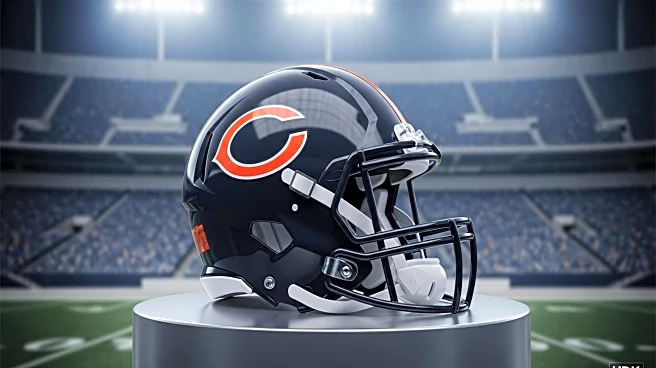What's Happening?
Caleb Williams, the quarterback for the Chicago Bears, has shown impressive individual performance since joining the NFL. Williams, who gained fame at Gonzaga College High School and later at Oklahoma and USC, was the No. 1 overall pick in the 2024 NFL Draft. Despite his personal success, including a 21:6 touchdown-to-interception ratio and a completion percentage of 63.4%, the Bears have struggled, holding a 5-13 record. His rookie season saw him surpass 3,000 passing yards, a first for a Bears rookie. However, issues such as a weak offensive line, inconsistent receivers, and a defense ranked 28th in points allowed have hindered team success.
Why It's Important?
The situation with Caleb Williams highlights the challenges of translating individual talent into team success in the NFL. While Williams has demonstrated his capabilities, the Bears' inability to capitalize on his performance raises questions about the team's management and strategy. The disconnect between Williams' stats and the team's record suggests systemic issues that could affect the franchise's future. This scenario underscores the importance of a supportive team environment and effective coaching in maximizing a player's potential, which is crucial for the Bears to improve their standing in the league.
What's Next?
The Bears face critical decisions regarding their roster and coaching staff to better support Caleb Williams. Potential changes could include acquiring new draft picks, signing free agents, or implementing a coaching overhaul. These adjustments are necessary to address the team's weaknesses and leverage Williams' talent effectively. The franchise's historical struggles, including their last playoff win in 2010, indicate a need for significant improvements to rise in the NFL standings.
Beyond the Headlines
The Bears' situation with Caleb Williams also reflects broader themes in professional sports, such as the impact of team dynamics on individual performance. The contrast between Williams' college success and his NFL challenges highlights the importance of a cohesive team structure. This case may prompt discussions on how franchises can better integrate star players into their systems to achieve collective success.










